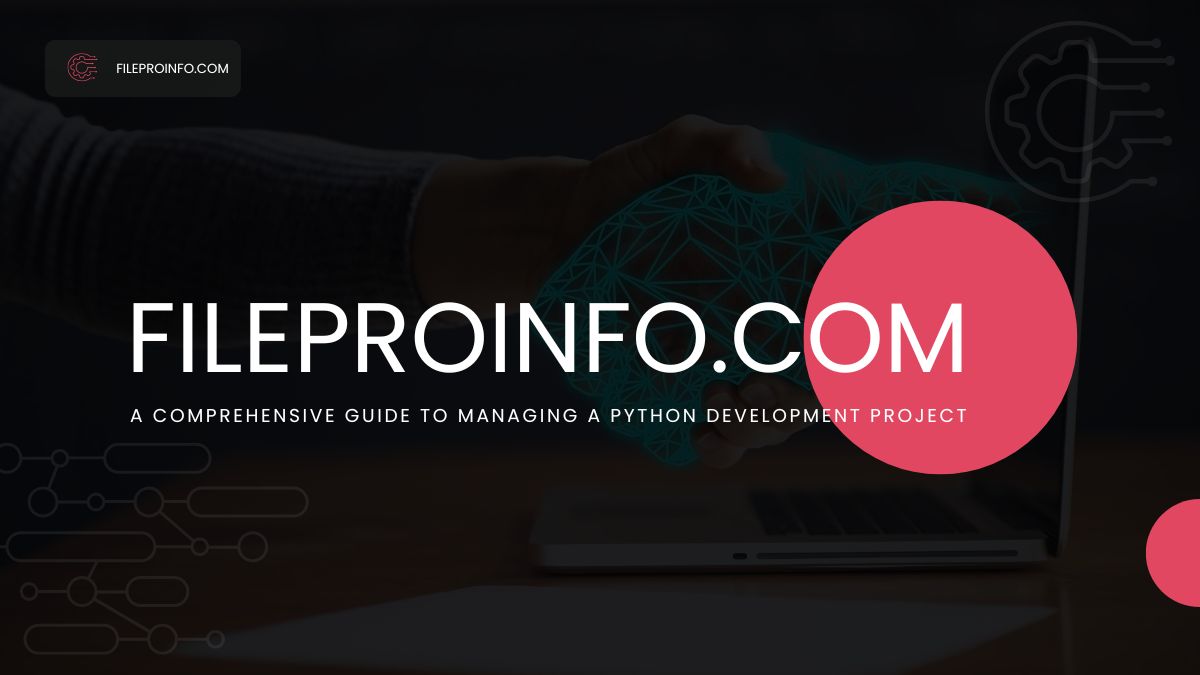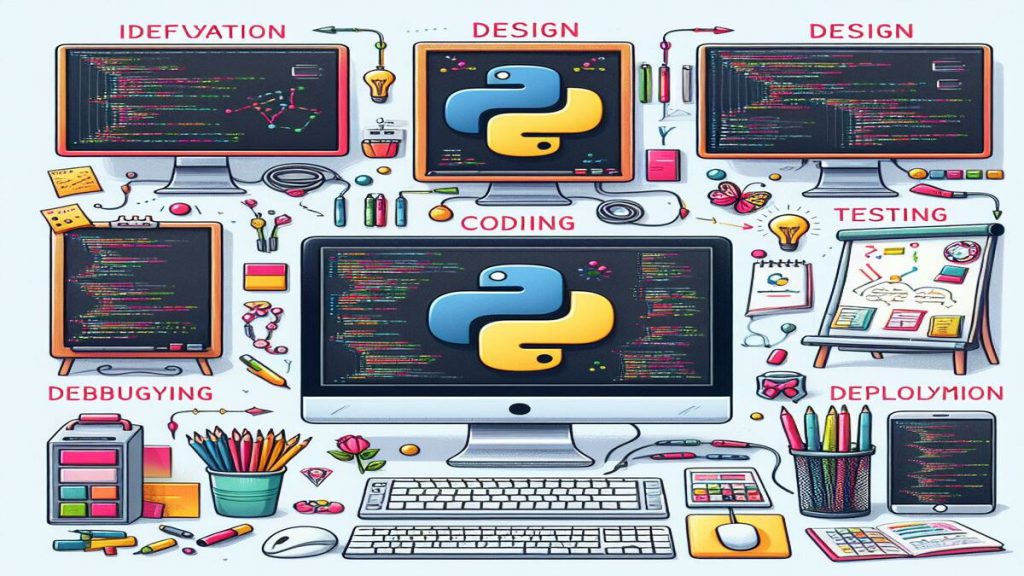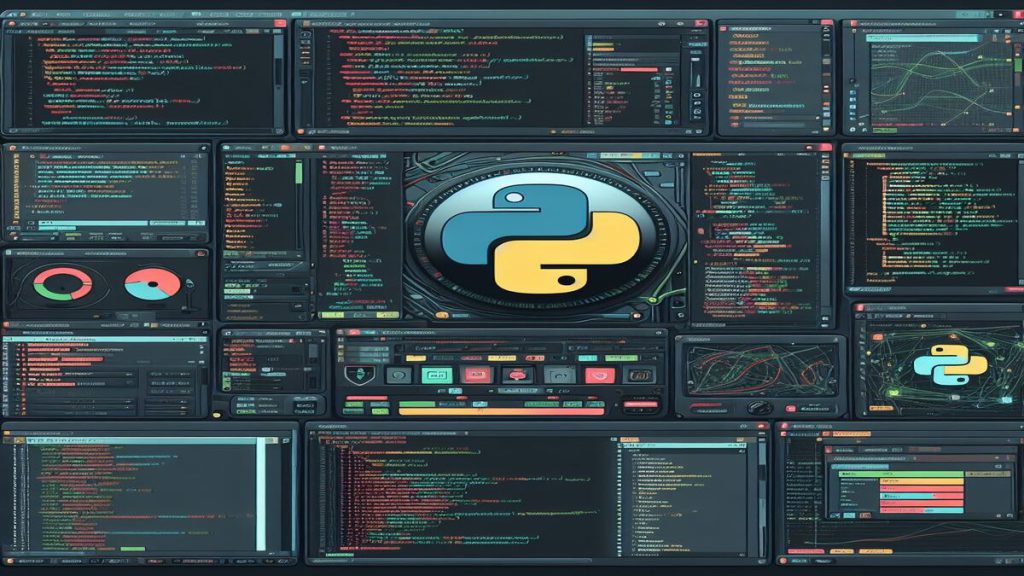
Effective project management is the cornerstone of successful software development, and Python, with its versatility and power, is a popular choice for building various applications. In this comprehensive guide, we will delve into the key aspects of managing a Python development project, drawing insights from industry experts at Django Stars, a prominent player in the field.
Defining Project Requirements
To embark on a successful Python development project, a crucial first step is to clearly define project requirements and objectives. Engage in thorough discussions with stakeholders to gain insights into their expectations. The emphasis is on the importance of a well-defined scope as the foundation of a successful project.
Defining the project scope involves not only understanding the technical specifications but also considering the end-users’ needs and expectations. This collaborative process ensures that the project aligns with the broader business goals, setting the stage for a successful development journey.
Choosing the Right Python Framework
Selecting an appropriate Python framework is a critical decision that significantly influences the project’s success. Django, a high-level web framework, is renowned for its robustness and scalability. According to Roman Gaponov, CEO of Django Stars, choosing the right framework is akin to laying a solid foundation for a building; it determines the project’s structural integrity.
In addition to Django, there are various Python frameworks available, each catering to specific project requirements. Flask, Pyramid, and FastAPI are among the alternatives, offering flexibility and customization. The choice of the framework depends on factors such as project complexity, scalability requirements, and development team expertise.

Building a Proficient Python Development Team
The success of any project is closely tied to the proficiency and collaboration of the development team. Assemble a team of skilled Python developers with expertise in relevant frameworks. Hire Python Developers directly from Django Stars, ensuring access to top-tier Python talent tailored to your project’s needs.
Building a proficient team goes beyond individual technical skills. Consider factors such as team dynamics, communication abilities, and a shared commitment to project success. Foster a collaborative environment where team members feel empowered to share ideas, solve problems, and contribute to the overall success of the project.
Fostering Effective Communication and Collaboration
Communication is the lifeblood of a Python development project. Establish clear channels within the team and with stakeholders to facilitate seamless collaboration. Utilize collaboration tools to streamline workflows and enhance project visibility. Effective communication is the glue that holds together the diverse elements of a Python development project.
Effective communication extends beyond team interactions; it encompasses regular updates to stakeholders, addressing concerns, and providing transparency into the development process. Adopting an open communication culture fosters trust and ensures that all project stakeholders are on the same page.
Embracing Agile Methodologies
In the ever-evolving landscape of Python development, adopting Agile methodologies is a strategic move. Agile practices provide the flexibility and responsiveness needed to adapt to changing project requirements. Breaking down the project into sprints ensures incremental development and regular feedback loops, aligning perfectly with the dynamic nature of Python development.
Agile methodologies, such as Scrum or Kanban, introduce iterative development cycles that allow for frequent reassessment and adaptation. Embracing Agile principles encourages collaboration, adaptability, and a focus on delivering incremental value, ultimately contributing to project success.
Version Control and Code Management
Implementing a robust version control system, such as Git, is indispensable for efficient code management. Employing branching strategies isolates features, facilitating collaborative development without compromising code integrity. Version control is the backbone of code management, allowing developers to work seamlessly on various aspects of the project.
Version control not only tracks changes in the codebase but also provides a safety net for the development team. It enables easy collaboration, rollback to previous states, and the ability to experiment with new features without disrupting the main codebase. Investing time in establishing solid version control practices pays dividends throughout the project’s lifecycle.

Testing and Quality Assurance
Quality assurance is not merely a phase but an ongoing commitment to delivering a reliable Python application. Integrate automated testing into the development process to ensure code quality. Regular code reviews and continuous integration practices aid in early bug detection, fortifying the project’s reliability. Thorough testing is emphasized in delivering a reliable Python application.
Testing is a critical aspect of the development life cycle, encompassing unit tests, integration tests, and end-to-end tests. Automated testing frameworks, such as PyTest or unit test, streamline the testing process, ensuring that each code change is thoroughly validated before integration. Investing in a robust testing infrastructure contributes to a stable and maintainable codebase.
Documentation and Knowledge Sharing
Comprehensive documentation plays a crucial role in a project’s legacy. Maintain detailed records for code, APIs, and project architecture. Encourage knowledge sharing within the team through regular meetings and documentation reviews. Documentation is the legacy of a project, ensuring smooth transitions and facilitating ongoing maintenance.
Documentation serves as a knowledge repository for the development team and future contributors. It includes not only code documentation but also API specifications, system architecture, and user manuals. Prioritize documentation as an integral part of the development process, reducing onboarding time for new team members and ensuring the project’s long-term sustainability.
Conclusion
Successfully managing a Python development project requires a holistic approach, combining technical expertise, effective communication, and strategic decision-making. By following this comprehensive guide and incorporating insights from Django Stars’ experts, you can navigate the complexities of Python development and deliver successful projects. Remember, success lies in a well-defined scope, a skilled team, and an unwavering commitment to continuous improvement.
This comprehensive guide provides a roadmap for not just managing but excelling in Python development projects. From the initial project definition to building a proficient team, fostering communication, embracing Agile methodologies, implementing robust code management practices, ensuring quality through testing, and maintaining comprehensive documentation – each step contributes to the overall success of a Python development endeavor. With these insights and strategies, you are well-equipped to steer your Python project towards success.




